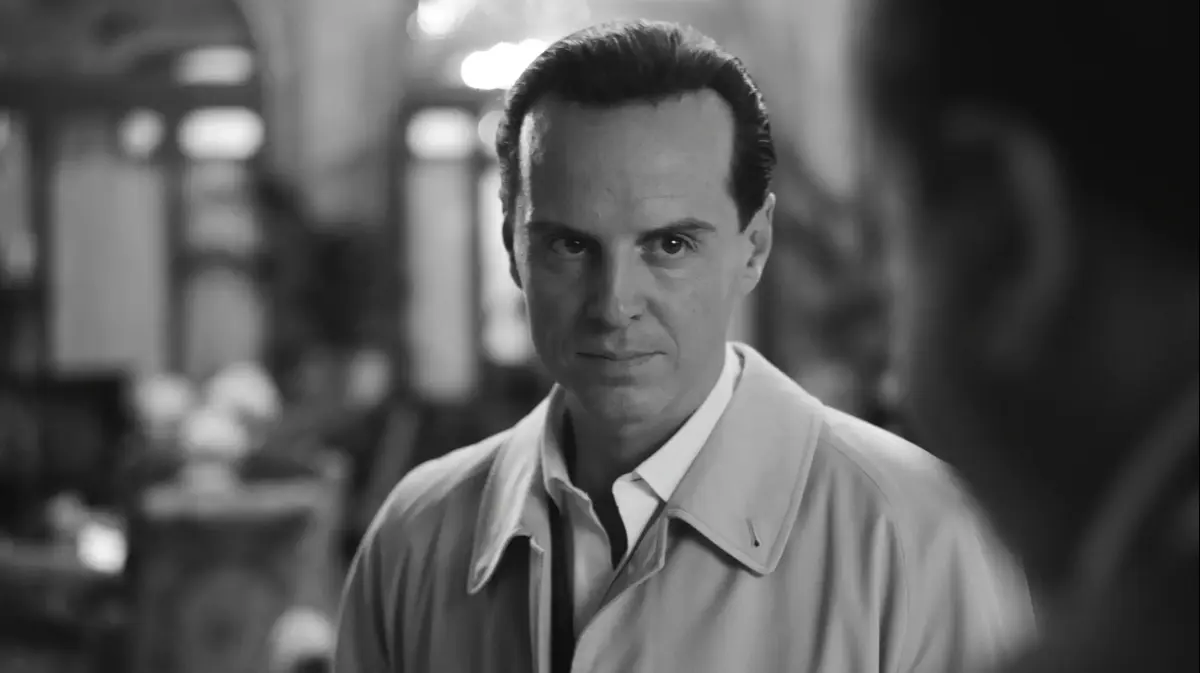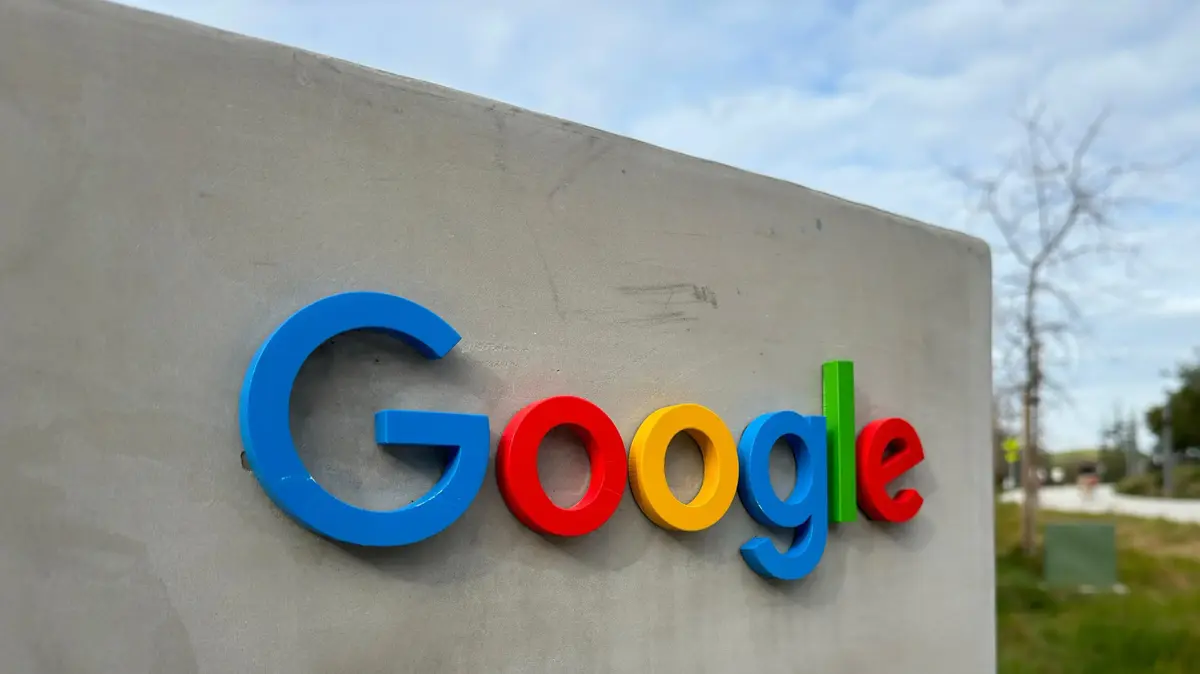culture
All articles
"Fear Motivates You": The fierce competition that made Netflix a giant company
Cruel honesty, transparency at all costs and excellence above all.
Netflix's rise to the status of the most influential streaming company in the world has gone through an ambitious, cold and sometimes cruel mechanism.
Behind the Scenes - Part I
Tags
Netflix
Ilan Kaprov
Sunday, 27 September 2020, 00:00
Share on Facebook
Share on WhatsApp
Share on general
Share on general
Share on Twitter
Share on Email
0 comments
Mirit Harari was brought to rest: "the sun of us all" ...
The Singer in the Mask - Opening Program
This is how it is season 2, Dana Modan, Asi Cohen
Breslav followers got stuck on their way to Uman 17.09.20
The magician Hezi Din will perform in Dubai, September 2020
Story time: Yaron London reads stories to children
Netflix series "Ratched" by Sarah Paulson
A woman kisses her father live to win the prize
Adults undress in front of children on a TV show
Israel signs peace agreement between the United Arab Emirates and Bahrain: ...
Netflix (screenshot)
The city of Bend in the state of Oregon is the kind of place where the cliché "picturesque town" seems to have been written.
This is the largest metropolis in the center of the country, but in practice the number of inhabitants in it (about one hundred thousand in total) is similar to that of Kfar Saba or Herzliya.
The city looks like a designed postcard of a Zen workshop: bluish, shiny rivers and lakes that flow alongside residents' houses, flutter leisurely alongside lush forests, and in the background rise photogenic mountains with snow-capped peaks.
It is considered an open secret for those who are interested.
Reputable travel magazines mark it as a must-see site for extreme sports enthusiasts or families on vacation, who will find in its surroundings an ideal environment for rafting, mountain biking trails, mountaineering and skiing.
Starting in 2018, a new and clearly unplanned attraction was added to all of these.
The last remnant of a mighty modern empire, a story whose repercussions have resonated around the world for a decade.
The building blends in well with the pastoral landscape of the city: an aesthetic tiled roof, small green lawns and exemplary cleanliness.
Only the large sign placed on the roof and built of large yellow letters on a blue background, suddenly creates a dissonance.
Precisely here, in the heart of calm and serenity, stands the last blockbuster branch in the world.
Somewhere in the prehistory of 2004, Blockbuster was the McDonalds of the video industry with 9,000 branches worldwide.
During its peak period, the chain opened a new branch on average every 17 hours.
In 2018, long after its downfall, there were still four last branches in the world - two of them in Alaska, where the long winters and high cost of internet connection were enough to keep the branches alive.
Eventually Alaska branches also succumbed to time changes.
In March 2019, the iconic branch in Australia (best remembered for John Oliver's contributions) announced its closure.
And so, the humble branch in Oregon became the only representation of an experience that shaped the lives of millions around the world for two decades.
Looking for recommendations or want to recommend new series?
Want to just talk about TV?
Join our Facebook group,
Digging Broadcast
More on Walla!
NEWS
This movie will be Netflix's next hit.
That does not mean he is good
To the full article
The blockbuster branches were much more than video rental stores, they were meeting places for movie mice who debated cinematic quality, destinations for first dates who came to rent a movie together, a regular pastime for families who came to choose the movie to watch over the weekend
Inside the store it looked like time was running out.
Scattered on the wall-laden shelves are the titles in alphabetical order, with the main wall dedicated to the main attraction - new movies.
The store manager says she serves 4,000 active subscribers, and the number is growing daily.
But alongside those who come to borrow and return titles, the place has become a pilgrimage site for fans.
Families who come to the place are divided into parents who stare with loving eyes at the shelves so familiar, and their children who look confusedly at the reality in which physical copies of movies and series are rented and returned manually for periods of time measured in hours.
Even the computer system in place has not been replaced, and includes the original cataloging software from the 1990s.
Were branch of Blockbuster rental store more videos, they were meeting places Cinema mice litigation furiously cinematic quality, goals First Dates came together to rent a movie, a permanent recreation of families who came to pick him watch the movie on weekends.
Nostalgia that makes us forget the heart of the The fact that Blockbuster was far from the romance it now associates with is a cynical and greedy corporation that has trampled and wiped out countless small video stores, notorious for its lateness fines (which at one point reached 70% of company revenue), its problematic treatment and poorly dictated service policy. The existence of the branch in Band, Oregon, is a nostalgic journey into simpler days, a resounding testimony to what could have happened.In 2000, the year it was inaugurated, the giant Blockbuster received an offer to acquire a small and ambitious company to send DVDs by mail.The price, $ 50 million, was Funny for a corporation whose fortune was estimated at $ 6 billion. The offer was almost rejected with contempt. Ten years will pass from this moment until Blockbuster declares bankruptcy.
Quite a few key moments in history were born this way, in a decision that could change everything.
And we had blockbuster online subscribers today, but that would be a distortion of reality.
Blockbuster was too big, too institutionalized, too seven to be the company to disrupt the existing order and challenge the Hollywood status quo.
To do all this requires the hunger, ambition, audacity and courage of an underdog.
The little company that brought her down had all of these: Her name is Netflix.
More on Walla!
NEWS
Emmy Award winners 2020: "Heirs" won the drama award, Shira Haas did not take the statuette
To the full article
John Oliver contributes to Blockbuster
More fun with fewer employees
In January 2016, Netflix became a global force overnight, announcing global expansion to 130 countries, including Israel.
When the offer to sell the company was put on the table of Blockbuster executives in 2000, Netflix had 300,000 subscribers in the U.S. It currently stands at 193 million subscribers worldwide. Ten times, and it does not stop.In the latest Forbes ranking of the 100 fastest growing companies in the world, Netflix ranks fifth, although today it is the corporate empire with 8,600 employees and a total value estimated at $ 160 billion.With the outbreak of the corona plague, many economic experts predicted that Netflix It will be hit in the face of the global economic crisis, which will cause its subscriber to save on luxuries and give up its monthly subscription. In practice, Netflix added about 10 million subscribers in the second quarter of the year.
This recurring tendency to beat predictions and break conventions stems from an extraordinary organizational culture.
This culture was created in the image of Reed Hastings, chairman and CEO of the company and one of its two founders.
Something in Hastings' demeanor and outward appearance - with the timeless French beard and carelessly button-down shirts - seems to embody the attitude of society as a whole.
He usually seems to say much less than he could, and his amused look conveys that he knows much more than he would be willing to reveal.
The tendency to challenge the obvious has been with him since his youth, when he was admitted to the College of Arts in the state of Maine, and it was there that he decided to do a degree in algebra.
A brief biography of him, published in the New York Times in 2006, testified that the principle of abstraction (a mathematical concept by which one focuses on the central features of an object and abandons all others) fascinated him.
This perception will become a guiding principle in his life and in Netflix itself.
More on Walla!
NEWS
Relax my sister: "Rached" is beautiful, but she is scribbled and in love with herself
To the full article
Embodies the attitude of the whole society.
Reed Hastings, Founder and CEO of Netflix (Photo: Imagebank - GettyImages)
Although Pure Software, the first startup to set up and specialize in software troubleshooting, has been successful and growing gradually, Hastings feels unable to handle the growing responsibilities.
He asked the company's management to replace him, was denied, and continued to lead it until it was sold.
In 1997, six years after its inception, Hastings left with a small fortune in his pocket thanks to the exit.
Shortly after, he met Mark Randolph, also the founder of a successful startup, and the two took advice on a new joint project.
Hastings' version of the two process, which has already become a sort of myth, claims that the idea to set up Netflix was born on the day he was forced to pay a $ 40 fine to Blockbuster because he forgot to return the copy of "Apollo 13" on time.
The insult and fear of telling his partner about the damage caused him to come up with a new concept: a website that would allow movies to be viewed for new and advanced technology (DVD) with a few mouse clicks, receive it within two business days in the mail and return it the same way.
Randolph, who wrote the book "That Will Never Work" about the early days of Netflix, argues that reality was much less ideal and immediate.
"It's a great story," he claims, "just like that of Newton, who did not really discover gravity because an apple fell on his head."
Life within the new startup of Hastings and Randolph has been characterized by quite a few upheavals, while the company is trying to make its way in the complicated reality of the dot-com crisis and the twin attacks.
One of the most notable of which occurred on a founding day in 2001, at the height of fierce competition against Blockbuster that threatened to liquidate the company.
Workers were asked to arrive at the parking lot, where Hastings and HR manager Patti Cord were waiting for them, informing them that a third of them would be fired.
"This cut spawned the culture of high achievement," Cord told the great podcast "Land of The Giants" when she recalled that day.
"We managed to double the output with two-thirds of the people. And it was more fun."
The implications of this day have changed the worldview of Hastings and company executives.
Netflix found out without meaning to who she is, and now all she has to do is define it in words.
More on Walla!
NEWS
Not everything was bad: the 9 best Israeli series of 2004
To the full article
Randolph talks about the establishment process
Sports team, not a leisure club
No matter where you worked, you probably heard the phrase "we are a family" at least once in one paraphrase or another.
This sense of shared destiny, artificial as it may be, is the automatic sentiment on which societies hang to encourage mutual guarantee.
Netflix has never been such a place.
In 2009, eight years after the "parking lot massacre", she was such a successful and confident company that she decided to publish her "I believe" in front of everyone.
The result unfolds on top of a fascinating presentation that unfolds with sometimes chilling simplicity, the contempt of Hastings and the managers next to him for the managerial status quo.
It has since become a kind of sacred trophy for many high-tech companies, which have adopted many principles from it.
At the core of the presentation is the insight that hard and decent work and effort are values worthy of severance pay.
"We are a sports team, not a leisure club for children," says Slide 25, "the goal is for us to have a star in every position."
The Netflix worldview sees its employees as what NBA team executives see in their players: tools that can be replaced, transferred and cut as soon as they do not contribute to team promotion, or as soon as someone good from them arrives.
To make this goal a reality, company executives are expected to regularly run a test called "Keeper Test" on their employees, which includes only one question: If the employee announces tomorrow that they want to leave, how hard will I fight to keep them?
Any answer other than "very strong" requires the manager to say goodbye to the employee in order to make room for a person better than him.
And in the spirit of Hastings' totality, the test is applied to all employees from CEO and staff. In 1998, Hastings summoned his co-founder and former CEO, Mark Reynolds, following the failure to close a deal with Sony Studios.
Hastings brought up a detailed PowerPoint presentation from his computer, listing all the reasons why Randolph is no longer fit to serve.
Reynolds was demoted to the presidency, and Hastings took his place as CEO. He was required to give up 650,000 shares in the company he owned, diluting his ownership to 15 percent. Five years later Randolph found himself out of the company he founded. Patti Cord, the company's human resources manager and founder, who fired one-third of its employees in one day, ended it this way. You'd be surprised to hear, but both justify the move in retrospect. "Perhaps the PowerPoint presentation was not the most empathetic gesture," Randolph recalled, .
More on Walla!
NEWS
"Pedophile porn"?
The storm surrounding the film in question on Netflix proves that everything is dumb
To the full article
Zero sentiments.
Cindy Holland, Netflix's freshest senior fired (Photo: Imagebank - GettyImages)
The biggest and most recent layoffs are those of Sydney Holland, which in the early 2000s was recruited by Ted Sarandos, the company's esteemed content manager, and until recently served as Netflix's vice president and vice president of content purchasing and original productions at the company.
As part of her role, she actually oversaw the development of some of Netflix's most significant series, such as "House of Cards" and "Orange is the New Black," and confirmed the creation of huge hits like "Strange Things" and flagship works like "The Crown."
She and Sarandos worked closely together, became close colleagues and shared an office throughout the years, even as Netflix grew.
When Sarandos was recently promoted to co-CEO, everyone expected the Netherlands to take his place as CEO. All this did not prevent Serendos from saying goodbye to her. In this case not necessarily because of her malfunction, but because Netflix's main intentions these days are global deployment. The place of the Netherlands is taken by the person responsible for foreign content, Bella Bejeria, a veteran Hollywood director who during her four years at the company made a number of impressive choices, such as the "Paper House" acquisitions, which became a huge global hit, "Apple" and "The Wizard" - The Bavarian will continue in its role in parallel with the new responsibility of local content. It was perceived as better for the sake of this union, as the Netherlands has no experience with international content. The veteran senior was directed to the exit door. Zero sentiments.
A huge global hit.
"The Paper House" (Photo: PR)
This cruel honesty is another one of Netflix's famous code arrays.
One of Hastings' biggest flops occurred in 2011, when he decided to break down the company's DVD delivery service and streaming service into two separate services.
The first was left with the original name, while the second was given the bizarre name "Qwikster" and included a separate site.
If the confusing separation of two cumbersome services in one place just wasn’t enough, their total cost amounted to a 60% rise in the monthly subscription price, at a time when millions of Americans were still licking the wounds of the 2008 Great Depression. Netflix stock plunged, customers were furious and reviews were hurled everywhere.
Less than a month passed and the company returned to it.
But the mistake did not bother Hastings as much as the fact that none of his employees saw fit to comment in real time that the idea was bad, even though some certainly thought so.
A legacy born in the wake of the incident, known as "Sunshining", states that any failed employee is required to speak before a respectable forum of his friends and managers, in which he will describe the mistake, the conclusions he drew and the way he intends to implement them.
"Farm for Dissent," another process adopted by the company, connects to the fact that Netflix employees and executives are encouraged to gamble big and dare with big ideas, but they must first check them out with their peers and pass their audition.
If the test passed and the idea failed, the company would just move on as if nothing had happened.
But if the idea fails and has not previously been "peer-reviewed" - the sword of dismissal will be swung quickly.
In the reality of such honesty, Netflix employees are used to being judged by everyone around them for their ideas, initiatives and conduct.
And if it sounds intense, it's just because it's really intense.
More on Walla!
NEWS
Prisoner of Tide: "The Third Day" takes a familiar, but so beautiful, path
To the full article
The Rise and Fall of Blockbuster
Who needs rules when there is trust
In a fascinating article published in the Wall Street Journal in 2018, journalist Shalini Ramachandran unfolded her work routine at the technology giant.
The article, which is based on interviews with dozens of past and present employees, paints a picture of an organization that has turned stability and breathing space into enemies.
"Every day I come to work I am afraid I will be fired," said a senior public relations manager at one of the meetings described in the article.
"Very well," a company executive replied, "because fear motivates you."
Netflix's code sees this conduct as a way of life, and argues that anyone who sees it as evil is simply in the wrong place.
"Many of our employees love the culture of the organization, and stay for a long time," it read, "they will be disappointed to receive a layoff package, but the process will be done with warmth and mutual respect. Other people place stability at the expense of execution and dislike our culture. We become better. And more in attracting the first type of people, and helping the second type understand that we are simply not for them. "
When Hastings and his men examined other large companies, they noticed a regular pattern.
In the process of growth the company becomes more and more complicated and as a result order and organization are required to get it back in the groove.
Sets of rules, procedures and management positions are created to enforce the policy, immediately causing the abandonment of creative employees who feel bound.
And while this method maintains the stability of society routinely, it becomes an anchor that pulls it down as soon as reality changes.
In this moment, when creativity is required more than ever, the rigid society has nowhere to turn.
The solution, according to Netflix's code, is to continually recruit talent and dramatically reduce the amount of rules.
This way the organization can grow and in the same breath also maintain the creative spark, which will allow it to adapt to the changing times.
The reduction of laws and procedures is replaced by another value: trust.
More on Walla!
NEWS
That's how we billed two billion people: Netflix's new film is not convincing but important
To the full article
Reed Hastings on Netflix entries
Each and every Netflix employee is exposed to its biggest trade secrets: the number of subscribers in each country, the viewing figures for each content item, the latest movies and series purchased by the company and their cost.
Technology, culture and economics journalists, and certainly competing companies, would be willing to kill to get their hands on these numbers - but they were never leaked.
The company almost teases its employees to demonstrate maturity: we trust you to know what kind of behavior will hurt the company.
If that's not enough, the company's 500 senior employees are exposed to the salary data of its 8,600 employees, from the CEO onwards. Thus, the company believes, transparency is created that actually prevents resentment and allows outstanding employees to negotiate improved conditions, knowing exactly what their counterparts earn.
Another characteristic of total trust is decentralization and delegation of authority.
Netflix is built as an entertainment group divided into divisions (standup, docu, foreign productions, etc.) that operate as independent mini-studios.
The division managers enjoy an absolute green light to carry out transactions as they see fit, without updating their superiors and sometimes even contrary to their opinion.
For example, Sarandos opposed the purchase of the true crime parody "American hooligan" - but his employees insisted on purchasing it anyway.
Although Netflix eventually decided to cancel it, it became a cult series among viewers and critics.
Hastings himself testifies that in quite a few cases he is updated through blogs and entertainment news sites on decisions made in his company.
More on Walla!
NEWS
"Exceptions / Netflix and the Re-Invention Culture": Read Chapter One
To the full article
She also did not help to keep the senior.
"Orange is the new black" (Photo: PR)
Absolute trust, delegation of authority and conditions (employees are not limited to several days of leave, do not report their working hours and are entitled to up to one year of maternity leave), are constantly balanced by an endless examination of performance.
Neil Hunt, one of the first employees at Netflix and one of the founding team of its famous algorithm, failed the Keeper Test and was fired by Hastings.
In his reasoning, the CEO explained that one of Hunt's employees is now better suited for the position he held - senior product manager. In other cases, employees were notified of their dismissal during business trips on behalf of the company, and managers were fired because they were too hesitant to lay off employees. "360", in which each of the employees is invited to anonymously visit each of the other employees - including the CEO.
Many managers then hold forums in which employees and executives share the reviews written about them, and present the process by which they will improve on their shortcomings.
Although Netflix claims that its annual turnover (11% of employees) is lower than the average for high-tech companies (13%), and a significant proportion of its employees, past and present, indicate that the culture in the place has made work positively challenging - the prices of constant pressure are clear.
In the annual lists of the most sought-after workplaces of Forbes magazine and the Glassdoor website, which are based on employee ratings and include 100 places each, Netflix has never been present.
Netflix, obviously, is not thrilled.
The focus of the company in their eyes is not the conditions, the atmosphere or the mutual celebration - but the desire to be part of the most ambitious and successful organization in the entertainment industry.
The organization seduced Hollywood into believing it was the naive sucker on duty, then created the most significant cultural-consumer upheaval of the 21st century.
Share on Facebook
Share on WhatsApp
Share on general
Share on general
Share on Twitter
Share on Email
0 comments









